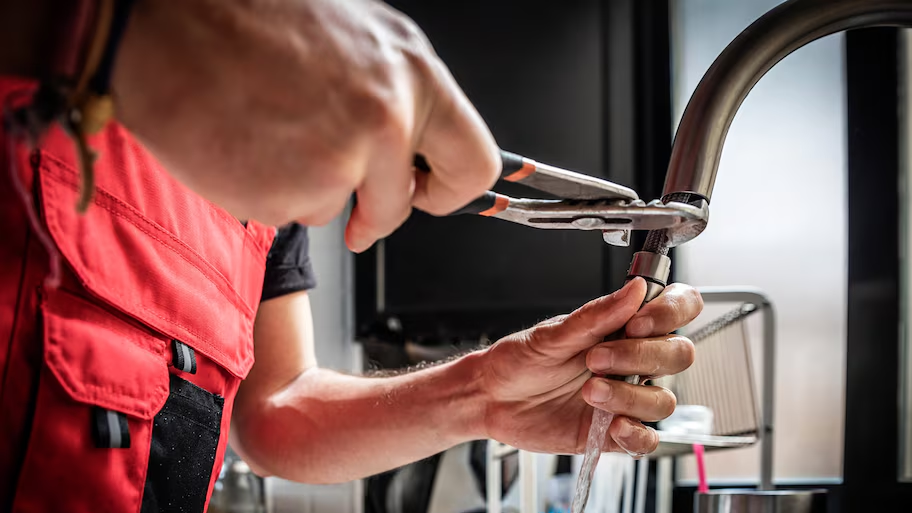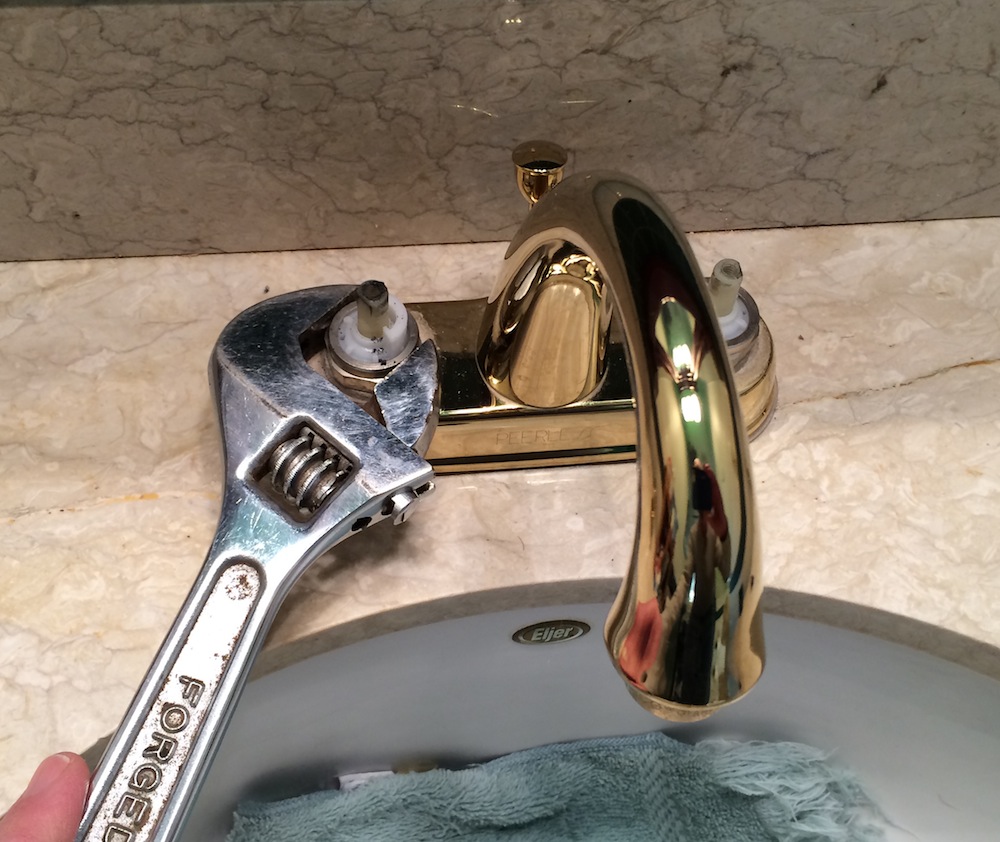What are your opinions about Leaky Faucets: Why They Happen & What to Do About Them?

Dripping faucets may look like a small inconvenience, yet their influence surpasses simply the inconvenience of the audio. From wasting water to incurring unneeded monetary prices and health risks, disregarding a leaking faucet can result in different effects. In this short article, we'll look into why it's critical to address this usual home problem without delay and successfully.
Wastefulness of Water
Environmental Influence
Dripping taps contribute significantly to water wastefulness. According to the Epa (EPA), a solitary tap trickling at one drip per second can squander greater than 3,000 gallons of water each year. This not only stress water resources but additionally influences ecological communities and wild animals dependent on them.
Step-by-Step Guide to Dealing With a Dripping Faucet
Tools Needed
Prior to attempting to repair a dripping faucet, collect the necessary tools, consisting of an adjustable wrench, screwdrivers, substitute parts (such as washers or cartridges), and plumber's tape.
Common Tap Issues and Their Solutions
Recognize the kind of tap and the specific problem triggering the drip. Usual issues consist of worn-out washing machines, corroded shutoff seats, or damaged O-rings. Describe maker directions or online tutorials for detailed guidance on repair services.
Financial Prices
Increased Water Costs
Past the ecological impact, trickling taps can blow up water bills significantly. The accumulated wastage over time converts into greater energy costs, which could have been prevented with prompt repair work.
Prospective Residential Property Damages
Furthermore, long term dripping can bring about damage to components and surface areas surrounding the faucet. Water buildup can create staining, deterioration, and even architectural concerns if left neglected, leading to added repair work expenses.
Wellness Concerns
Mold and Mildew Growth
The continuous existence of dampness from a trickling tap produces an ideal atmosphere for mold and mildew and mold development. These fungi not just jeopardize interior air high quality yet also position health threats, particularly for individuals with respiratory system problems or allergies.
Waterborne Diseases
Stationary water in dripping faucets can come to be a breeding ground for microorganisms and various other microorganisms, raising the danger of waterborne diseases. Contaminants such as Legionella microorganisms thrive in stationary water, possibly bring about severe illnesses when ingested or inhaled.
DIY vs. Professional Repair service
Benefits and drawbacks of DIY Repair Service
While some may try to take care of a leaking faucet themselves, do it yourself repair work include their own set of challenges. Without correct knowledge and devices, DIY attempts can intensify the concern or lead to incomplete repair work, prolonging the trouble.
Advantages of Working With a Specialist Plumber
Employing a professional plumber guarantees that the underlying root cause of the trickling faucet is addressed successfully. Plumbers possess the proficiency and devices to diagnose and repair faucet problems successfully, conserving time and lessening the danger of more damage.
Environmental Responsibility
Private Contribution to Conservation
Taking obligation for fixing dripping faucets straightens with broader efforts towards water preservation and ecological sustainability. Every individual's actions collectively make a significant impact on protecting priceless sources.
Lasting Living Practices
By focusing on timely fixings and adopting water-saving routines, people add to sustainable living practices that profit both existing and future generations.
Safety nets
Normal Upkeep Tips
To stop leaking faucets, do regular maintenance such as cleansing aerators, evaluating for leaks, and changing worn-out parts promptly. Additionally, take into consideration mounting water-saving devices or upgrading to a lot more reliable components.
Relevance of Prompt Fixes
Addressing trickling faucets as quickly as they're noticed avoids more water waste and prospective damages, ultimately conserving both water and money in the future.
Influence On Home Value
Understanding of Well-Maintained Property
Maintaining a property in good condition, consisting of addressing upkeep issues like dripping taps, enhances its regarded worth and charm among potential customers or renters.
Impact on Resale Value
Properties with well-maintained plumbing components, consisting of faucets, command greater resale values in the property market. Attending to dripping taps can add to a favorable impact during property assessments and negotiations.
Final thought
Addressing a leaking faucet surpasses simple benefit; it's an important step toward saving water, minimizing financial costs, and securing wellness and residential property. Whether with DIY repair services or specialist help, acting to take care of leaking faucets is a little yet impactful method to promote accountable stewardship of sources and contribute to a much healthier, more sustainable future.
How to Fix a Leaky Faucet: Step-by-Step Repair Guide
A leaky faucet may seem like a simple annoyance, but if it's not fixed promptly, that leak could cost hundreds to potentially thousands. From water damage to mold, mildew, and high water bills, even a tiny leak can be catastrophic if left unattended. Damage like this can even affect the overall value of your home, so it's important to take the right approach for leaky faucet repair. You may need the help of a plumber in some cases, but we've got a few tips you can try on how to fix a leaky faucet before calling the pros.
Four Faucet Types
When you're learning how to fix a leaky faucet, the first step is knowing what kind of faucet you're working with! There are four common types.
Cartridge Faucets
Cartridge faucets come in one- or two-handled varieties. In one-handled cartridge faucets, hot and cold water combines in a single cartridge. In the two-handled versions, hot and cold water are controlled separately and mixed in the faucet.
Ball Faucets
Ball faucets have a single lever you push up and down to adjust the pressure and rotate to change the temperature. A slotted metal ball controls the amount of water allowed into the spout.
Compression Washer Faucets
They're the oldest type of faucet, but they're still used in many homes — especially older ones. Compression faucets have two separate handles that, when turned, raise or lower the washer that seals a water valve. This valve stops water from flowing through the faucet when it is turned off.
Disc Faucets
Disc faucets rarely need to be repaired due to their maintenance-free design. The water flow is controlled by two discs — the upper one raises and lowers against a fixed lower disc, creating a watertight seal. If your disc faucet starts leaking, you may need to replace the seals or clean residue buildup from the inlets.
Fixing a Leaky Faucet
Step 1: Turn Off the Water
Whether you're learning how to fix a leaky bathtub faucet or how to fix a leaky kitchen faucet, always turn off the water supply to your working area when you're fixing a leak. The last thing you want is a flood added to your list of things to fix.
Look for the shutoff valves below your sink or around the tub and turn them clockwise to stop the water flow. If your faucet doesn't have shutoff valves, you may need to turn off the water for the whole house. Check to make sure it's off by turning the faucet on. If nothing comes out, you're ready to start the repair.
Step 2: Take Apart the Faucet
How you disassemble your faucet depends on the type of fixture you have. You can use a flathead screwdriver to remove the caps on top of the handle or handles for cartridge and compression faucets. Inside, you should see handle screws. Unscrew these with a screwdriver to remove the handle.
Disc- and ball-style faucets will typically have an inlet screw near the handle, and removing that will reveal the interior of the faucet.
Detach the Valve Stem
For cartridge- and compression-style faucets, you'll see the inner valve stem or cartridge once you remove the faucet handles. If you have a compression faucet, unscrew the brass valve stem. If you have a cartridge faucet, pull out the cartridge. If your cartridge has been in place for a while, it may require some tools or extra force to remove it due to mineral deposits.
Examine and Replace Parts
Once you've removed the parts, check them out to confirm what needs to be replaced. You may see corroded rubber washers, O-rings, stems, or cartridges. On a ball-style faucet, check the seats and springs for damage.
If you need to repair a leaky disc faucet, check the inlet and seals on the lower disc.
Once you determine what parts must be replaced, visit your local hardware store. Bring the damaged parts with you to ensure you can purchase the correct components to replace them.
Clean Valves and Faucet Cavity
If you've removed a stem or cartridge, you may notice mineral buildup in the faucet's threads. Use white vinegar to clean the valve seat by soaking it for a few minutes, then scrub it away with a soft toothbrush and rinse with warm water. You can also clean the interior of the faucet in the same way.
Reassemble the Faucet
Once your faucet is cleaned and the required parts have been replaced, it's time to reassemble it. Put the pieces back together and slowly turn the water supply back on. Doing this slowly is crucial because too much initial water pressure can damage the new hardware you've just installed.
https://homewarranty.firstam.com/blog/how-to-fix-leaky-faucet

I recently found that post about 4 Common Reasons for a Leaky Faucet when surfing around the search engines. If you appreciated our blog entry kindly don't forget to share it. Thank you so much for taking the time to read it.